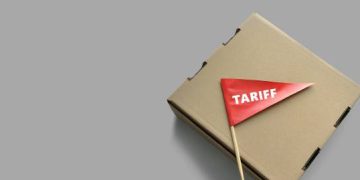Supply Chain Report – 10/07/2025
A wide-ranging set of new U.S. tariffs took effect early Thursday, imposing duties on dozens of countries and potentially reshaping global trade flows. The new tariff package, introduced under President Donald Trump, places levies ranging from 10% to 41% on imports from nearly 70 nations beginning at 12:01 a.m.
The measure represents one of the most extensive trade actions undertaken by the current administration, reflecting its emphasis on protecting domestic industries and addressing long-standing trade imbalances. The White House has stated that the tariff rates were largely determined based on the size of the U.S. trade deficit with each partner country.
The implementation follows several months of delays and revisions. Originally announced in April as part of the so-called “reciprocal tariff” initiative, the policy underwent multiple postponements as the administration sought to negotiate new trade deals. The latest version of the executive order adds new tariff coverage and expands on the earlier “Liberation Day” trade framework announced earlier this year.
Countries affected by the new tariffs include major U.S. trading partners such as Canada, Brazil, India, and Mexico, among others. Canada now faces a 35% tariff on exports to the United States, while Brazil—one of the largest exporters of coffee to the U.S.—will be subject to an effective 50% tariff after combining its existing 10% rate with an additional 40% duty. The highest rates in the order apply to Laos and Myanmar at 40%, and Syria at 41%.
India is set to face a 25% tariff under the new policy, which is expected to rise to 50% by late August. The phased increase is part of an extended rollout that allows time for negotiations and adjustments. Goods shipped to the U.S. by sea before August 7 and arriving before October 5 will be exempt from the new tariff levels.
The White House explained that the new tariff structure is designed to strengthen domestic manufacturing and rebalance trade relationships that have long been viewed as unfavorable to the United States. Administration officials have described the initiative as part of a “new system of trade” focused on ensuring fair competition and reducing dependency on foreign imports.
The trade action has also been coupled with a series of negotiations with foreign governments. According to official statements, the U.S. has already reached trade agreements with the United Kingdom, Vietnam, and Indonesia, as well as a preliminary accord with China. These deals reportedly include commitments on market access, labor standards, and product sourcing designed to enhance bilateral cooperation.
Despite these developments, concerns have emerged from industry groups and economists regarding the potential economic effects of the tariffs. According to an analysis by the Yale Budget Lab, the measures could increase the average U.S. household’s annual expenses by approximately $2,400 due to higher consumer prices. Importers typically pass along part of the added tariff costs to customers, contributing to potential inflationary pressures.
Business associations have urged the administration to reconsider or narrow the scope of the tariffs, citing risks to global supply chains and increased costs for manufacturers, retailers, and logistics providers. The U.S. Chamber of Commerce and other trade organizations warn that the levies could disrupt longstanding trade relationships with allies and key economic partners.
The White House, however, maintains that the policy is a necessary step toward achieving more equitable trade outcomes. “The president and his trade team want to cut the best deals for the American people and the American worker,” White House press secretary Karoline Leavitt said in a previous briefing, noting that the tariffs are designed to protect industries that have struggled to compete with low-cost imports.
As part of the administration’s strategy, negotiations are expected to continue with several nations over the coming months. Officials have indicated that tariff adjustments could still occur depending on trade progress and the willingness of partners to address U.S. concerns regarding market access and reciprocal duties.
Economists are watching closely to see how the tariffs affect key sectors such as automotive manufacturing, agriculture, and consumer goods. With the new rates now in effect, attention will shift toward the long-term impact on trade volumes, production costs, and inflation trends in the U.S. economy.
#USTradePolicy #GlobalMarkets #EconomicUpdate #SupplyChainNews #NewsUpdate















